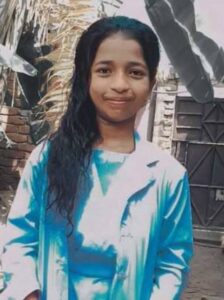10 years of Goal in Bangladesh


Goal, a programme designed to reach girls in under-served communities through the power of sport, was first launched in 2006. In 2013, the programme came to Bangladesh for the first time, where it has gone from strength to strength.
Girls, typically between the ages of 12 and 18 (10 and 19 in Bangladesh), that are part of the Goal programme spend time playing sport and learning valuable life skills. The programme delivers modules on financial education, communication skills, health and hygiene, self-confidence and employability.
Goal has reached more than 50,000 girls and young women in Bangladesh and will have reached more than 1,000,000 girls and young women globally by the end of 2023.
To look back on ten years of Goal in Bangladesh, we spoke to a host of people instrumental in its first decade of operation.
Bitopi Das Chowdhury, is head of Corporate Affairs, Brand and Marketing at Standard Chartered. She has worked on Goal in Bangladesh since its launch.
Bitopi: It was introduced in India first. The girls played softball for an hour and then did an hour of learning. That included modules about savings and banking and about decision making at home. We thought it would be great for Bangladesh because we had girls from very underprivileged backgrounds, many of them were school dropouts. They did not have the outlet to mix with kids of their own age and learn and develop through each other’s experiences.
Rashida Parveen, worked for BRAC – the international development organisation that helped establish and run Goal in Bangladesh. Rashida spent 27 years at BRAC but now runs her own company, the Anya Foundation.
Rashida: We talked to local women, and they were keen for Goal to come to Bangladesh. Once they visited the programme, they knew it could do good
Bitopi: We didn’t think softball would work for us. The most popular sports here are cricket and football, and for the girls who might not be too keen on those, we had a third option – karate. Karate was very, very popular. Learning self defence gave the girls a real sense of security.
Meet the Goal girls: Sumaiya, 17
What is your background?
In a family of five, I’m the eldest of three sisters. Growing up in Dhaka, my father is a rickshaw driver, and my mother is a housekeeper.
What are your dreams and ambitions?
My dream is to work as a social worker.
What are you hoping to get out of the Goal programme?
I’m looking to gain skills that will help me earn a living in the future, particularly computer skills.
What would you say has been your greatest challenge to date?
In a world with limited resources, my biggest challenge has been to continue my education.
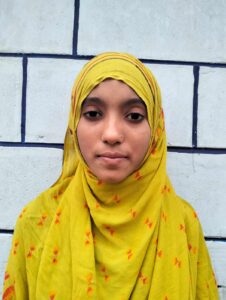
Following its launch, Goal grew quickly in Bangladesh, helping more girls each year and refining its curriculum.
Yvonne Henry is the Director of Brands for Women Win, the organisation that manages Goal globally across 20+ countries and helps facilitate Goal Bangladesh with our local partners on the ground.
Yvonne: It’s scaled up in Bangladesh over the years. When we started, we had maybe 2,500 girls from low socio-economic groups. Quite quickly we grew to having more than 10,000 girls on the programme.
Bitopi: The overall delivery mechanism for Goal has changed. We started with a focus on the girls who were very underprivileged. That has widened, and we are now also working with girls who are already in education.
Rashida: When we started, we regularly changed things and introduced new elements, whether that was on the sport or the education side. We used monitoring and evaluation systems to regularly baseline the projects and understand their impact. That helped us hone Goal in its early days.
Meet the Goal girls: Tisha, 16
What is your background?
With five family members, including my parents and two brothers, I’m the second among the siblings. I’m studying in the 10th grade. My father is a driver, and my mother is a housekeeper. I want to challenge the notion that only boys can provide for their parents in their old age by becoming successful.
What are your dreams and ambitions?
I aim to become a doctor and travel abroad.
What are you hoping to get out of the Goal programme?
I want to train in something profitable, like a beauty spa, to improve my quality of life.
What would you say has been your greatest challenge to date?
Overcoming social prejudices and engaging in various social activities
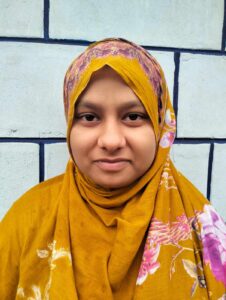
Goal has not just helped young women in Bangladesh learn through sport. It has also helped them grow in confidence and become more independent.
Mahmuda Nasrin, is the co-project manager of Goal Bangladesh and works with our current partner organisation, PSTC – short for Population Services and Training Centre. PSTC, replaced BRAC as our on the ground partners for Goal in October 2021.
Mahmuda: There have been cases where the girls have stood up for themselves and stopped their own weddings. That makes me feel good about the programme.
Bitopi: I have seen two or three girls who were very quiet but became really confident after starting the programme. When they would be part of a team activity you could see their natural leadership qualities. I’ve seen girls’ personalities change because of this programme and that is a proof point of its success.
Yvonne: We’ve seen a huge increase in knowledge around sexual reproductive health and rights. The girls understanding of gender-based violence has also grown.
Bitopi: There was one girl who had come back to be part of the Goal programme four years in a row [the programme only lasts one year in most circumstances]. At the end of the fourth year, she became one of the trainers. I saw how passionately; she was talking to the girls about the benefits of the programme and how she is now a decision maker in her own family. That was inspiring for the girls because it was someone from their own background – it was living proof the programme really resonated with them.
Meet the Goal girls: Barsha, 15
What is your background?
I belong to a family of two, consisting of me and my mother. My father passed away long ago. I faced societal humiliation due to the absence of male family members to advocate for me. Despite these challenges, I am determined to become a teacher to achieve respect and a better life for my mother and myself.
What are your dreams and ambitions?
I aspire to become a teacher and support my mother and family financially.
What are you hoping to get out of the Goal programme?
My hope is to receive the necessary training to secure a good job in the future.
What would you say has been your greatest challenge to date?
Surviving in a society without male family members for support
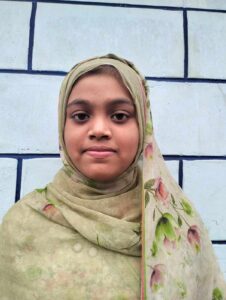
As well as having a positive impact on young women in Bangladesh, Goal has also become popular with parents, creating more open dialogue on difficult to discuss issues.
Dr Mahbub Alam, who has two decades experience in public health, is PSTC’s Head of Programmes. He helps run Goal on the ground in Bangladesh.
Dr Mahbub: It’s had a massive impact in Bangladesh. Some of the girls had a lack of information around reproductive health. It’s not easy to discuss these issues with young women but the difference with Goal is that they’re coming here for play but also get to learn. That was something that really interested parents.
Yvonne: The use of sport is what makes it unique. I’ve worked with a lot of corporate partners on a lot of different programmes. Programmes from financial institutions usually focus on financial education but there’s something about the sport and play element that makes Goal joyful. Especially for girls who aren’t usually able to access sports.
Mahmuda: Girls – especially in rural areas – don’t often get opportunities, many are not allowed to play outside. Through this programme, they have a safe space to play. This not only encourages the girls, it also encourages parents and other family members to be more open minded. It’s something that’s working on a social level for the girls too.
Meet the Goal girls: Aduri, 12
What is your background?
In a family of five, including my parents and three sisters, I am the youngest. I was born in a village but raised in Dhaka. My father has a physical disability, and my mother works in a laundry shop. I’m currently studying in the 6th grade.
What are your dreams and ambitions?
My dream is to become a doctor.
What are you hoping to get out of the Goal programme?
I hope to receive sewing training.
What would you say has been your greatest challenge to date?
Overcoming social discrimination.
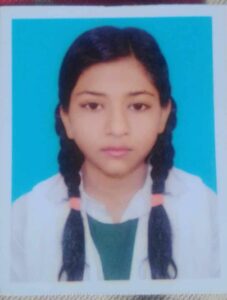
Following 10 successful years, the team at Goal Bangladesh are looking to the future with the aim of helping more young girls but over a longer period.
Dr Noor Mohammad is the executive director of PSTC and has worked on Goal Bangladesh since 2015. He previously worked at the UN.
Dr Noor: The programme must be continued, and we need to think about scaling it up. Some of the girls we only see for a single year. We should be working with each group of girls for a longer period.
Yvonne: We’re hoping to move to a new strategy. Taken everything we’ve learned and looking at research we want to have a longer intervention with the same group. We need to make the programmes deeper because, at the moment, it’s really a one year programme. So what happens when Goal ends? How can we ensure that there are more opportunities for the girls involved.
Bitopi: Goal has made a very profound impact in the past 10 years and we want this to continue but, of course, if possible, we want to scale up. I would also like it to bring in girls from even lower socioeconomic backgrounds so that they get the boost that they need in life to succeed.
Meet the Goal girls: Hazera, 17
What is your background?
I come from a family of five, including my parents and two sisters. I’m the second daughter, and I was born and raised in Dhaka. My father is physically disabled, so my mother is the sole breadwinner, working at a laundry shop. Currently, I’m in the 11th grade.
What are your dreams and ambitions?
I aspire to become a lawyer.
What are you hoping to get out of the Goal programme?
I hope to gain technical skills like sewing and computer proficiency.
What would you say has been your greatest challenge to date?
Asserting my rights as a girl has been my most significant challenge
